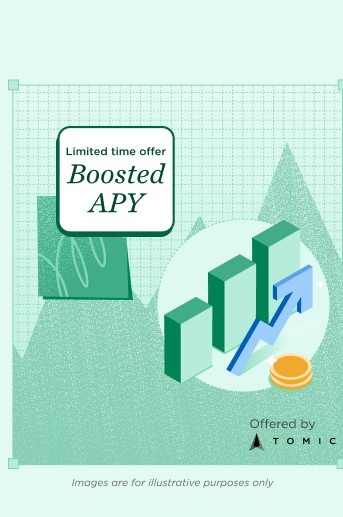How to Make Money: 19 Realistic Side Hustles
Many, or all, of the products featured on this page are from our advertising partners who compensate us when you take certain actions on our website or click to take an action on their website. However, this does not influence our evaluations. Our opinions are our own. Here is a list of our partners and here's how we make money.
1. Pick up freelance work online
Expert take
Need to know
- It takes Upwork up to 48 hours to approve your profile, and will take longer to land your first freelance gig.
- Getting paid on Upwork: Payment depends on contract type. Hourly contracts have a weekly billing cycle and you can withdraw funds 10 days later. Fixed-price contracts have a five-day waiting period after reaching a milestone.
- Getting paid on Fiverr: You'll be paid when the work order is complete, but you can't withdraw funds for 14 days. (The waiting time is shorter for Top Rated Sellers.)
Requirements
- Upwork and Fiverr require users to be at least 18 to sell work. Fiverr allows users age 13 and older to use a parent or guardian’s account, with permission. And Freelancer.com requires users to be at least 16.
2. Drive for Uber or Lyft
Need to know
- Allow some time for the application process, background check and car inspection.
- Lyft and Uber can pay you instantly through a debit card or transfer earnings to your bank account pretty quickly.
Requirements
- A car with four doors. It must also meet other requirements, such as year, physical condition, etc.
- Depending on your state, you may need to have at least one year of licensed driving experience to drive for Lyft. Uber requires at least one year of licensed driving experience in the U.S. (or three years if you’re under 25).
- Let your car insurance company know of your plans before you start driving.
3. Make deliveries for DoorDash, Amazon and more
Need to know
- The background check can take a few days, and timing can vary.
- Payment timing also varies, but earnings are generally issued weekly or quicker.
Requirements
- You'll need transportation. It could be a car, scooter or bike, depending on the service.
- A smartphone is necessary to accept and process jobs.
- Each delivery service has a minimum age requirement, but it varies by service.
4. Sign up for Taskrabbit
What Redditors say
Need to know
- You can set up your profile and register in a matter of hours, but can't start accepting tasks until your profile is approved by Taskrabbit. This may take a few days.
- Once approved, you need to pay a $25 fee, so you may first want to research your market and the value of your skills to determine if that fee is worth it to you.
- You're paid after the task is completed through direct deposit to a checking account. Payment typically takes a few days to appear in your account.
Requirements
- You need to be at least 18 to start working with Taskrabbit.
- Prospective Taskers must also pass a background check.
5. Walk dogs/feed cats with Rover or Wag
What Redditors say
Need to know
- Rover: It takes about five to 10 business days for Rover to review and approve your profile.
- Wag: The application process takes about two weeks, and you must pass a background check and pet care quiz.
Requirements
- For Rover or Wag, you’ll need to live in an area where the service operates.
- If you want to pet-sit in your own home, you’ll need an apartment or house that allows pets.
- You’ll have to pass a background check.
6. Get a babysitting gig
Need to know
- You can create a profile on Care.com or Sittercity in a matter of minutes.
- You typically get paid when you complete your gig, whether by a service or directly from the customer.
Requirements
- You need to be at least 18 to list as a caregiver on Care.com and Sittercity.
- Clients may request a background check.
7. Become a private tutor
Need to know
- Startup time depends on demand in your area. It could take a while before you get your first student.
- If you haven't tutored before, you'll want to allow for time to prep so students feel like they're getting the most out of their time with you.
- How quickly you get paid depends on whether you tutor via a platform or in-person; either way, it likely won't take long.
Requirements
- You'll need deep knowledge in an area that people need help understanding, like mathematics, a foreign language or test prep.
- Educational requirements might apply. Some tutors might be required to be currently enrolled in a four-year university or have at least a bachelor's degree from an accredited four-year university.
Is gig work worth it?

8. Sell your gently used clothes
Need to know
- You can sell used clothing and accessories several ways, but they're all pretty quick to start.
- Fast: A brick-and-mortar consignment store like Plato's Closet will give you cash on the spot.
- Medium: Other in-person and online consignment shops pay you when your items sell, or when they receive and inspect your items.
- Either way, allow at least a month for your payout.
Requirements
- Gently worn shoes, clothing and accessories.
- Items will go through various inspections before being accepted. For example, ThredUp checks items for pilling, fading, shrinkage, missing parts (like buttons) and stains.
9. Sell your wares on Etsy
Need to know
- Opening an Etsy shop is the easy part. It can be done in a few hours.
- You need merchandise to sell, photos and descriptions to post, a name for your shop and a business plan to help you succeed.
- Sell an item and payment is deposited into your Etsy Payments account first, then to your bank account depending on your desired deposit schedule.
Requirements
- If you’re over 13 years old but under 18, you can sell on Etsy but would be considered a minor and must follow extra policies.
- You need to have all necessary intellectual property rights to the merchandise sold in your shop.

10. Rent out your car on Turo
Need to know
- You can create a listing on Turo or Getaround in under 30 minutes.
- Turo initiates payment within three hours of the end of the rental, but you can expect it to take a few days for your bank to process the deposit.
- Getaround rental earnings accrue daily or monthly. Payments are made via direct deposit.
Requirements
- If you lease your car, check the terms of your agreement and financing documents to make sure you’re allowed to share it.
- Your car must meet certain requirements (make/model/year/mileage) and satisfy maintenance and safety standards. You may also be asked to agree not to list on other platforms.
Earn a 3.9%* APY on your cash
Boost your APY for 6 months with a Cash Account offered by Atomic Brokerage. Paid Non-Client Promotion*The boosted 3.9% Annual Percentage Yield (APY) is offered on up to $250,000 in deposits for the first 6 months when you open a Cash Account offered by Atomic Brokerage LLC and deposit funds within 14 days. Balances above $250,000 will earn the standard 3.25% APY. After the 6 month introductory period, all balances will earn the standard 3.25% APY. The 3.9% boosted introductory APY is available through NerdWallet’s promotional program. APYs are accurate as of 12/17/2025 and are subject to change without notice.

11. Earn from your YouTube channel
Need to know
- Making a channel is easy as pie; putting videos on it is harder.
- Signing up for Google AdSense is pretty easy, but to use it with YouTube, you’ll need to be part of the Partner Program.
- You can use AdSense on a website or blog with fewer eligibility requirements.
- Allow at least two months for ad revenue to start trickling in.
- You need to earn at least $100 before you're eligible for a payout.
- Once you hit the $100 threshold, earnings are issued between the 21st and 26th of the following month.
Requirements
- Your own website that has been active for at least six months.
- For YouTube, you need at least 1,000 subscribers and to meet requirements related to views or watch hours.
- You must be at least 18.
12. Sell digital products on Gumroad
Product example
Need to know
- This is not a path to quick cash, but payouts could be passive down the road.
- You’ll need to understand what types of products sell well, come up with a profitable idea and then sweat the details so you can deliver a quality product.
- You’ll also need a marketing strategy to make your product(s) stand out in a crowded digital marketplace.
Requirements
- Talent (or at least good idea and the will to execute it), a computer, design or writing software or site (depending on your product) and a platform to host or sell the product.
13. Self-publish an e-book
Need to know
- Just because it’s simple to self-publish doesn’t mean your book will sell. Competition is high with millions of e-book titles on the Kindle Store.
- Choose one of two royalty options: 70% or 35%. You’ll have to price your book between $2.99 and $9.99 if you select the 70% option. You have more pricing flexibility when you pick 35%.
Requirements
- You need to create a Kindle Direct Publishing account to get started.
- Proper formatting is important. Amazon says most Microsoft Word documents convert to e-books easily, but other formats are also supported.
14. Monetize your Twitch channel
Need to know
- You can launch a Twitch channel and start streaming in a day, but it will take much longer to build a following.
- Subscription and ad revenue earned as a Twitch Partner or Affiliate is paid out around the 15th of every month, and you must have a balance of at least $50 for most payout methods (it's $100 for wire transfers).
Requirements
- You need to hit certain viewership and broadcast milestones to become a Twitch Affiliate or Partner and qualify for a share of game sales, ads and subscription revenue.
15. Become an Instagram influencer
Need to know
- Creating an Instagram account is quick, but building a following can take months or even years.
- Once you have the numbers, you'll need to find paid opportunities. You can do this via affiliate networks or by pitching brands you want to work with.
- The time to receive your payment will depend on the terms of your agreement, but affiliate networks typically pay out earnings the month after a campaign is completed.
Requirements
- An Instagram account with a dedicated, engaged following.
- You'll also need to meet the requirements of any affiliate network.
Should you try a "content" side hustle?

16. Take legit surveys or play games for money
Need to know
- The time it takes to get paid depends on the survey site and how much time you dedicate to taking surveys.
- Some sites let you cash out only after you hit a minimum earnings threshold.
- Other survey sites issue points, which can be redeemed for cash (via PayPal) or gift cards.
Requirements
- Most survey sites have a minimum age requirement, which ranges from 13 to 18 (depending on the site).
- Individual surveys may have specific requirements. Don't be surprised if you are disqualified from a survey without much explanation.
17. Test websites and apps
Need to know
- You need to complete a sample test as part of the UserTesting application process.
- You will start receiving testing opportunities after your application is approved.
- The timeline for approval can vary.
- Payment amounts vary based on the length of the tests. You get paid via PayPal 14 days after completing a website or app test.
Requirements
- You need to be at least 18.
- You need a device that meets UserTesting’s requirements, plus an internet connection and microphone.
- The practice test and most user testing requires English, German or French; some test opportunities may be in additional languages.
18. Sell unused gift cards
Need to know
- You can get an instant offer or quote via sites like CardCash and GiftCash.
- You can sell gift cards at kiosks and participating retail locations to get cash the same day, or try to sell them online. The latter takes longer, but you may get a better offer for your gift card.
Requirements
- Your gift card may need to meet a minimum balance to be resold. Not all cards will generate offers.
- Gift cards with expiration dates may not be eligible.
19. Sign up to be a mystery shopper
Need to know
- The application process is typically quick, but then it's in the company's hands. It can take days, or more, to assess your application, depending on demand.
- Payout timing and method vary by company. BestMark, for example, issues payments monthly.
Requirements
- Most mystery shopping services have an age requirement. You have to be at least 18 to shop for BestMark.
- Depending on the service, you may need internet access.
Watch out for making money scams
What’s your side hustle?
Earn a 3.9%* APY on your cash
Boost your APY for 6 months with a Cash Account offered by Atomic Brokerage. Paid Non-Client Promotion*The boosted 3.9% Annual Percentage Yield (APY) is offered on up to $250,000 in deposits for the first 6 months when you open a Cash Account offered by Atomic Brokerage LLC and deposit funds within 14 days. Balances above $250,000 will earn the standard 3.25% APY. After the 6 month introductory period, all balances will earn the standard 3.25% APY. The 3.9% boosted introductory APY is available through NerdWallet’s promotional program. APYs are accurate as of 12/17/2025 and are subject to change without notice.

How can I earn money online easily?
How can I make money fast at home?
How can I make money right now?
Article sources
- 1. Upwork news release. Upwork Human+Agent Productivity Index Reveals Up to 70% Boost in Work Completion from Human and AI Agent Collaboration vs. Agents Working Alone. Accessed Dec 23, 2025.
- 1. Pick up freelance work online
- 2. Drive for Uber or Lyft
- 3. Make deliveries for DoorDash, Amazon and more
- 4. Sign up for Taskrabbit
- 5. Walk dogs/feed cats with Rover or Wag
- 6. Get a babysitting gig
- 7. Become a private tutor
- 8. Sell your gently used clothes
- 9. Sell your wares on Etsy
- 10. Rent out your car on Turo
- 11. Earn from your YouTube channel
- 12. Sell digital products on Gumroad
- 13. Self-publish an e-book
- 14. Monetize your Twitch channel
- 15. Become an Instagram influencer
- 16. Take legit surveys or play games for money
- 17. Test websites and apps
- 18. Sell unused gift cards
- 19. Sign up to be a mystery shopper
- Watch out for making money scams
- What’s your side hustle?









